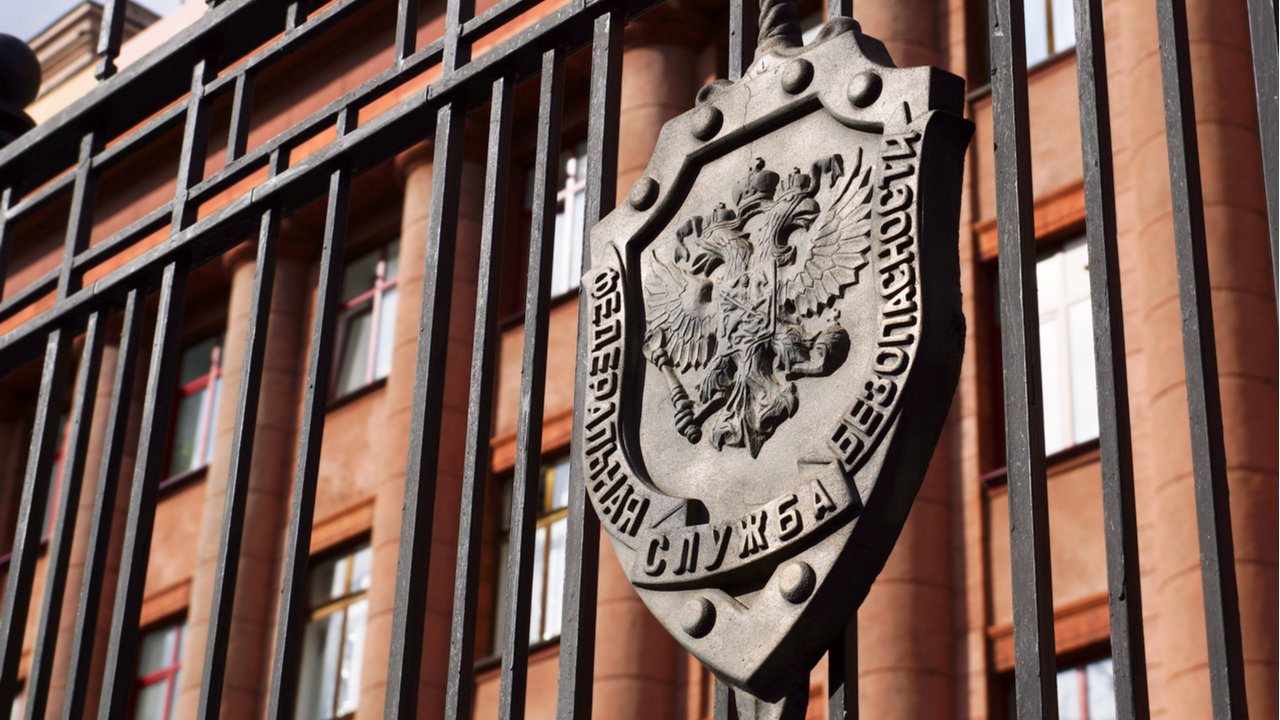
The Bank for International Settlements and the Financial Stability Board have similar views on tokenization — it could provide new benefits and familiar challenges.
The Bank for International Settlements (BIS) and the Financial Stability Board (FSB) have both released a series of papers ahead of the Group of 20 (G20) Finance Ministers and Central Bank Governors meeting on Oct. 23 and 24.
Brazil is the president of the G20 world’s largest economies for 2024 and, like India last year, it called for a discussion of digital currency.
Both the BIS and FSB released papers on tokenization on Oct. 22. Although their studies were carried out independently, the BIS and FSB emphasized common themes.
 The Financial Stability Board (FSB) Plenary met in Toronto on June 14 to discuss various financial stability issues. Key topics included the financial stability outlook, lessons from the March 2023 banking turmoil, and enhancing the resilience of non-bank financial intermediation (NBFI). The FSB also reviewed progress on implementing its global regulatory framework for crypto asset […]
The Financial Stability Board (FSB) Plenary met in Toronto on June 14 to discuss various financial stability issues. Key topics included the financial stability outlook, lessons from the March 2023 banking turmoil, and enhancing the resilience of non-bank financial intermediation (NBFI). The FSB also reviewed progress on implementing its global regulatory framework for crypto asset […] Indian Finance Minister Nirmala Sitharaman advocates for global consensus on cryptocurrency regulation, highlighting the need for international cooperation, particularly within the G20. She noted that while Indian regulators have differing opinions regarding how to treat crypto, there is currently no significant confusion. Indian Finance Minister on Crypto Regulation Indian Finance Minister Nirmala Sitharaman stressed the […]
Indian Finance Minister Nirmala Sitharaman advocates for global consensus on cryptocurrency regulation, highlighting the need for international cooperation, particularly within the G20. She noted that while Indian regulators have differing opinions regarding how to treat crypto, there is currently no significant confusion. Indian Finance Minister on Crypto Regulation Indian Finance Minister Nirmala Sitharaman stressed the […]
The policy paper includes recommendations for regulating activities related to stablecoins and decentralized finance (DeFi).
The International Monetary Fund (IMF) and the Financial Stability Board (FSB) have published a joint paper containing policy recommendations at the request of the Indian G20 presidency. The organizations have created the paper to combine the standards and consolidate collective recommendations to provide guidance and help various jurisdictions address risks associated with crypto asset activities.
The policy paper includes recommendations for regulating activities related to stablecoins and decentralized finance (DeFi). It also describes how regulatory frameworks and policies developed by both the IMF and the FSB can interact and fit together. However, it does not set or establish new policies, recommendations or expectations for relevant authorities.

The Financial Stability Board, the world’s largest financial services regulator, is reportedly planning to roll out a global regulatory scheme for cryptocurrencies in early 2023. According to a new Financial Times report, the FSB will announce in the coming months a timeline for the implementation of international crypto rules that local governments would then impose. […]
The post International Watchdog Set To Roll Out New Global Framework for Crypto Assets: Report appeared first on The Daily Hodl.

The absence of a CME Bitcoin futures premium, unrelenting record-high inflation and investor concerns over the economy are all factors weighing on BTC price.
The Bitcoin (BTC) price chart from the past couple of months reflects nothing more than a bearish outlook and it’s no secret that the cryptocurrency has consistently made lower lows since breaching $48,000 in late March.

Curiously, the difference in support levels has been getting wider as the correction continues to drain investor confidence and risk appetite. For example, the latest $19,000 baseline is almost $10,000 away from the previous support. So if the same movement is bound to happen, the next logical price level would be $8,000.
On July 11, the Financial Stability Board (FSB), a global financial regulator including all G20 countries, announced that a framework of recommendations for the crypto sector is expected in October. The FSB added that international regulators need to supervise crypto markets in line with the principle of “same activity, same risk, same regulation.”
In a written speech on July 12, Jon Cunliffe, deputy governor for financial stability at the Bank of England, said that crypto is somehow over and it should not be a concern anymore. Cunliffe added: “innovation has to happen within a framework in which risks are managed.”
To date, investors still haven’t figured out the total losses from deposits on crypto lenders Celsius and Voyager Digital, and both firms continue to seek either a recovery plan or bankruptcy. According to Voyager, the firm still holds $650 million worth of “claims against Three Arrows Capital,” so the exact numbers of customer assets remain unknown.
The negative newsflow is reflected in the CME’s Bitcoin futures contracts premium. This data measures the difference between longer-term futures contracts and the current spot prices in regular markets.
Whenever this indicator fades or turns negative, this is an alarming red flag. This situation is also known as backwardation and indicates that bearish sentiment is present.

These fixed-month contracts usually trade at a slight premium, indicating that sellers are requesting more money to withhold settlement for longer. As a result, futures should trade at a 0.25%–0.75% premium in healthy markets, a situation known as contango.
Notice how the indicator has stood below the “neutral” range since early April, since Bitcoin failed to sustain levels above $45,000. The data shows that institutional traders are unwilling to open leverage long positions, although it is not yet a bearish structure.
Exchange-provided data highlights traders’ long-to-short net positioning. By analyzing every client’s position on the spot, perpetual and futures contracts, one can better understand whether professional traders are leaning bullish or bearish.
There are occasional discrepancies in the methodologies between different exchanges, so viewers should monitor changes instead of absolute figures.

Despite Bitcoin’s 11% correction from July 9 to July 12, top traders have increased their leverage longs. The long-to-short ratio at Binance remained relatively flat at 1.13, while the top traders at Huobi started at 0.95 and finished the period at 0.93. However, this impact was more than compensated by OKX traders increasing their bullish bets from 1.09 to 1.32.
Related: The search term ‘Bitcoin Crash’ is trending — Here’s why
The lack of a premium in the CME futures contract is not concerning because Bitcoin is struggling with the $20,000 resistance. Furthermore, top traders on derivatives exchanges have increased their longs despite the 11% price drop in three days.
Regulatory pressure is unlikely to recede in the short term and at the same time, there’s not much that the Federal Reserve can do to suppress inflation without triggering some form of an economic crisis. For this reason, pro traders are not rushing to buy the dip because Bitcoin’s correlation to traditional assets remains high.
The views and opinions expressed here are solely those of the author and do not necessarily reflect the views of Cointelegraph. Every investment and trading move involves risk. You should conduct your own research when making a decision.
 The Financial Stability Board (FSB) says it is working on a “robust” regulatory framework for crypto assets and will report its recommendations to the G20 finance ministers and central bank governors in October. FSB to Present Robust Crypto Regulatory Framework to G20 in October The Financial Stability Board (FSB), an international body that monitors and […]
The Financial Stability Board (FSB) says it is working on a “robust” regulatory framework for crypto assets and will report its recommendations to the G20 finance ministers and central bank governors in October. FSB to Present Robust Crypto Regulatory Framework to G20 in October The Financial Stability Board (FSB), an international body that monitors and […]
An international body of regulators, officials, and bankers is set to propose widespread crypto rules in October. According to a new report from Reuters, The Financial Stability Board (FSB), an organization established by the G20 group, says the recent crypto market carnage produces a ripple effect. “The failure of a market player, in addition to imposing […]
The post Global Regulatory Body To Present New Crypto Rule Proposal at Next G20 Meeting: Report appeared first on The Daily Hodl.
 Russian Ministry of Finance has accepted a number of crypto regulatory proposals submitted by the country’s law enforcement departments. They cover a range of related areas, including the seizure of digital assets and the reporting of information on cryptocurrency transactions. Finance Ministry of Russia Backs Regulations Proposed by Law Enforcement Agencies Russia’s Ministry of Finance […]
Russian Ministry of Finance has accepted a number of crypto regulatory proposals submitted by the country’s law enforcement departments. They cover a range of related areas, including the seizure of digital assets and the reporting of information on cryptocurrency transactions. Finance Ministry of Russia Backs Regulations Proposed by Law Enforcement Agencies Russia’s Ministry of Finance […]
The measure comes along with a proposed ban on advertising of non-licensed crypto services.
Russia's Federal Security Service (FSB) and the Ministry of Internal Affairs (MVD) have submitted their review notes on the forthcoming “crypto bill,” developed by the country's Finance Ministry. Law enforcement agencies push for requiring crypto firms to share transaction data with investigators and for clarifying the terms on which digital assets can be seized.
On April 28, local newspaper Izvestia reported on the content of the review notes that the security service and police ministry filed to the Finance Ministry’s draft of the bill “On digital currency”. Some of the propositions were reportedly accepted by the Ministry, while others were turned down.
The Finance Ministry endorsed the FSB’s suggestion to oblige crypto service providers to share information not only with courts, but also with crime investigators. It also agreed that it was necessary to clarify a set of requirements for storing crypto transactions data.
Another remark came from the MVD, which noted that the bill lacks procedural details on crypto assets’ seizure and storage. The Federal Tax Service (FNS) also contributed a proposition to tighten the requirements for non-licensed exchanges and wallets — advertising such services would be illegal. These recommendations were accepted by the Finance Ministry as well.
What the Ministry did not accept was the FSB’s proposal of mandatory transaction of any mined currencies to licensed exchanges, as well as the application of anti-money laundering (AML) legislation to mining.
Related: Russia to include crypto into its tax code: Here is what the rules might look like
The Finance Ministry called the “excessively detailed and tight regulation” unfeasible at this point, as it might scare away crypto users and investors. The FNS' idea to disallow the banks to make crypto transactions with non-licensed entities merited a further discussion, the Ministry commented.
According to the head of the State Duma's Financial Market Committee, Anatoly Aksakov, the final draft of the “crypto bill” is expected to be introduced to the Parliament in May.
Last week, Reuters reported that the regional head of crypto exchange Binance agreed to supply Russia's financial intelligence unit, Rosfinmonitoring, with customer data potentially related to donations to the opposition activist Alexei Navalny. The company called this allegation "categorically false" in its blog post.